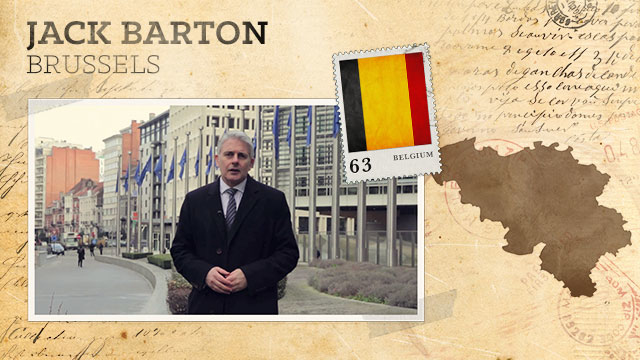2014 was a year in which some Euro area countries showed signs of recovery, including Greece and Ireland. But on the whole, Europe’s single currency region remains one of the biggest drags on the global economy. And the mood among Europeans looks less-than-bright, especially with jobless rates stubbornly high. CCTV’s Jack Barton walks us through the major issues from Brussels.

It was five years ago that the Eurozone economic crisis erupted. The single currency area is now slowly recovering but it remains trapped in a cycle of low economic growth, near record high unemployment and inflation so low, it’s dangerously close to deflation.
Yet, there is no longer widespread concern the Euro might implode or a member state exit the bloc. Policy experts say there is one key reason for that.
“The obvious one is the action of the European Central Banks. The fact the central bank declared back in 2012 that it would do whatever is necessary to safeguard the Euro and it has done so since then,” Janis Emmanouilidis, director of studies at the European Policy Centre said.
The ECBs’ record low interest rates and cheap loans to banks have calmed the markets, along with reforms like the banking union. But countries are still in trouble, and now it’s big economies like France and Italy, that are back in recession. That’s why many economists warn there is still danger ahead for the Euro.
Is anti-EU, or anti-Euro sentiment continuing to grow?
“You see for example in France the Front National, which is a party that wants to reintroduce the Franc has 30 percent of the popular vote and in Italy now the whole of the opposition wants to introduce the Lira so the political risks in the Eurozone remain,” Peter Vanden Houte, Senior Eurozone Economist said.
The European Central Bank is currently barred from outright purchases of government debt, better known as quantitative easing. But with the Eurozone’s ongoing economic problems coupled with political foot dragging on reforms, the expectation is the ECB will come under much greater pressure to expand its stimulus programs in the New Year.
 CGTN America
CGTN America

